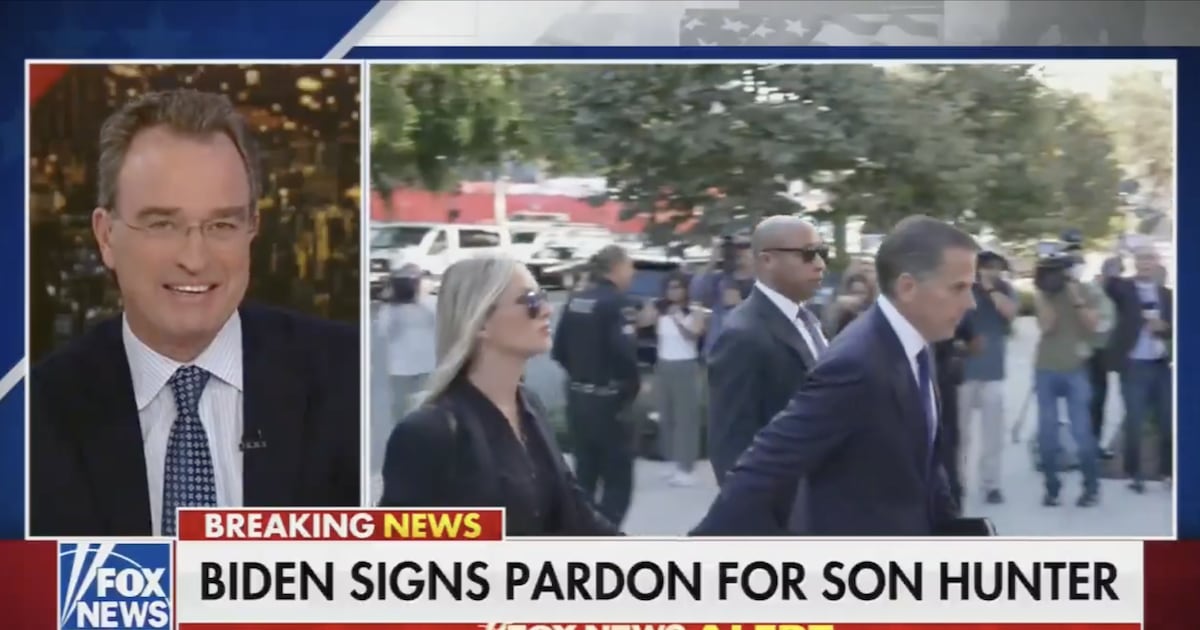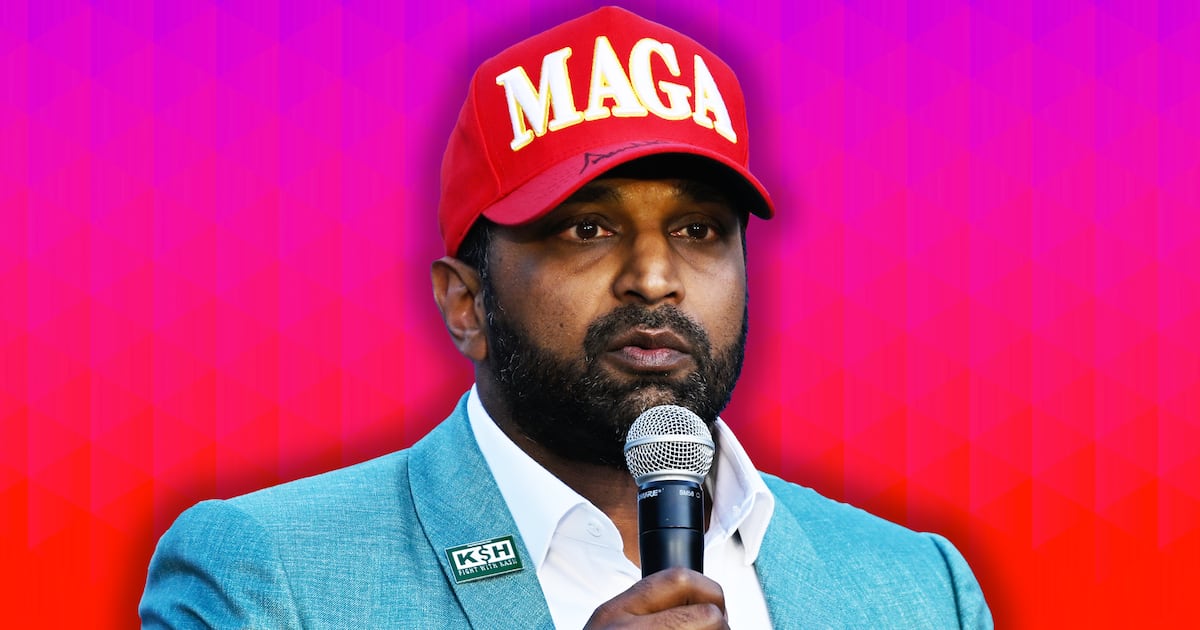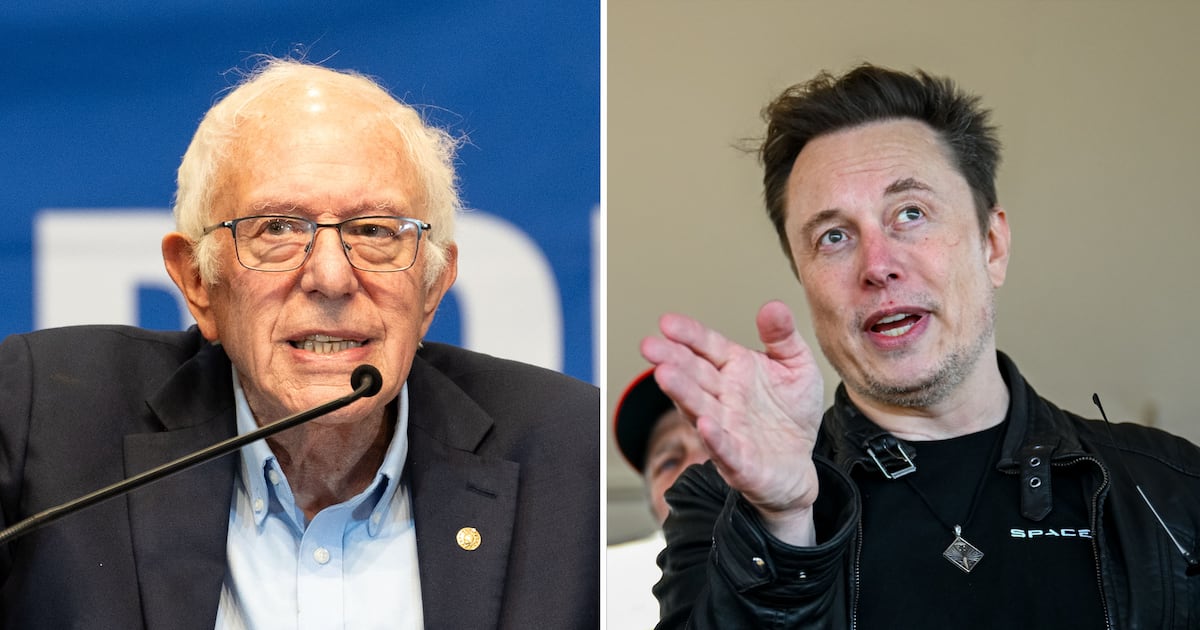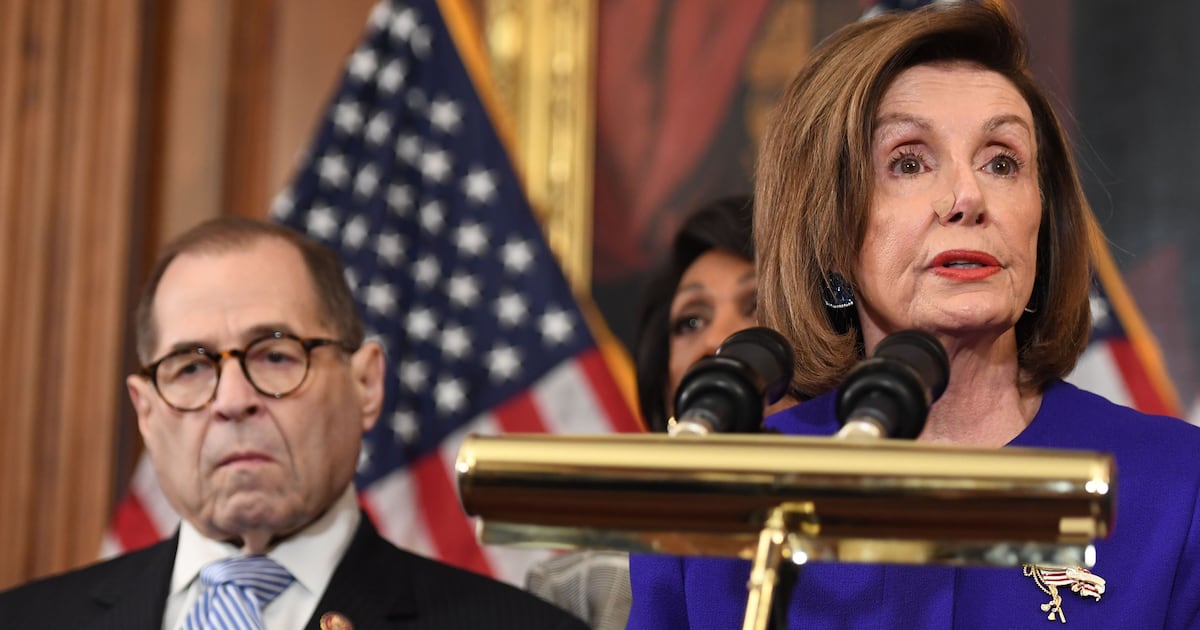In The Company You Keep, in theaters Friday, Robert Redford stars as a former member of the Weather Underground, a group of radical anti-Vietnam War protesters that bombed numerous U.S. landmarks. He’s made a new life for himself as “Jim Grant,” a widowed father and public policy attorney in Albany, N.Y., but the FBI has been chasing him for three decades in connection with a Michigan bank robbery that left one security guard dead. When Sharon Solarz (Susan Sarandon), another Underground member, is arrested, an ambitious young reporter (Shia LaBeouf) exposes Grant, forcing him to go on the run.

While the film, directed by Redford and based on a novel by Neil Gordon, is almost entirely a work of fiction, there are some parallels between Redford’s character and Bill Ayers, the real-life founder of the Weather Underground who is married to another WUO member, Bernardine Dohrn—though divulging them would give away a crucial plot twist.
In an in-depth interview with The Daily Beast, Ayers opened up about the Weather Underground, whether he has any regrets about the group’s actions—which included bombing the Pentagon, an NYPD precinct, and a Greenwich Village townhouse explosion that left three members dead—his relationship with President Obama, why he thinks Obama’s doing an awful job in office, and much more.
ADVERTISEMENT
How did you get involved with the anti-war movement?
I would describe going from a cloistered prep school in the northern part of Chicago to the University of Michigan in 1963 as an abrupt awakening; I was shocked into seeing the world anew. I got involved in the civil rights movement right away, and I lasted at Michigan for a year and dropped out and joined the Merchant Marines. I was in Piraeus, the port of Athens, in early 1965 and I came across a story about Vietnam—that was the first I’d heard of it. When I came back to the U.S. I went back to Michigan and got caught up with a group of people who were trying to organize some consciousness about Vietnam.
That was Students for a Democratic Society.
That was early SDS, yes. Instinctively, I thought there was something wrong with the U.S. going 10,000 miles away to pound a country the size of Florida into the ground, but I didn’t know much about it. In the course of those first few months in the fall of 1965, I learned a lot about it through open discussion and debate. We organized the first teach-in against the war in early 1965, and at that teach-in the president of SDS said something that really stuck with me: “Don’t let your life make a mockery of your values.” A week later, I was arrested for the first time in a nonviolent sit-in at a draft board in Ann Arbor, Mich., and ended up doing 10 days in jail. It was a combination of the black freedom movement, the anti-war movement, and an escalating sense of personal responsibility, to be engaged in those things. It felt like a moral imperative.
When did the Weather Underground form, and why did you form it?
Well, after I was arrested in 1965, something like 75 to 80 percent of Americans supported the war in Vietnam, and the people who opposed the war were a tiny minority. In 1968, after many arrests, demonstrations, and nonviolent protest, a majority of Americans opposed the war. That’s a pretty typical trajectory of Americans—we get excited when a war starts, and it takes us about three years for the thrill to be gone. And the black movement coming out against the war changed a lot of public opinion. Muhammad Ali said he wasn’t going to fight in the “white man’s war” and “ain’t no Vietcong ever called me the N-word,” and Martin Luther King Jr. said the U.S. was “the greatest purveyor of violence on earth.” The decisive thing was veterans coming home and telling the truth about what was going on, including John Kerry. Later, Nixon and Kissinger came in and instituted this racist term, a policy called Vietnamization, to make Vietnamese people fight their war. Every year that the war went on, 6,000 people were murdered. So how do you end it? The majority of the people in the world were against it, so by that time, the crisis in democracy was also a crisis in the anti-war movement. SDS splintered and people made a lot of different choices. I made my choice. I would never claim that what we did was all that brilliant, nor was it completely nuts. Nobody knew how to bring the war to an end, and it was one choice.
Do you feel the Weather Underground’s methods provided an effective means to end the war?
Looking back, you could say from the safety of 2013, “This is what I would’ve done,” but the truth is nobody knows what he or she would’ve done. The real, brutal fact is that none of us ended the war. We did organize people and radicalize ourselves, but the war ended when the Vietnamese drove the American forces off the roof of Saigon. Did we play a role in it? I’d like to think we did. I think we limited the options of the most vicious war-makers. There were plans to drop nuclear weapons on Vietnam, which never happened, or flood the dykes systems, which never happened, so we put some constraints on them. But I don’t think anyone could claim that what he or she did during that decade of aggression or occupation could have a measurable effect on ending the war. The Vietnamese refused to lose.
What about your policy of “direct action” in the form of bombing strategic targets within the U.S.?
The Weather Underground, while we certainly crossed lines of propriety and legality, we never killed or injured anybody. So what we did was a lot of vandalism. One of the most extreme actions that the Weather Underground took credit for was placing a bomb in the Pentagon which apparently, through some water damage, destroyed some computers and caused $1 million in damage. And that same day, 1,000 people were murdered. So how do you compare those things? A million dollars was the same cost as one hour of the war in Vietnam. As a culture in this country, we frame this issue in such a way that what we did was off the hook and completely violent, whereas John McCain has not had to answer that he killed civilians deliberately—that’s a war crime by any international standard—and yet he portrays himself, and apparently the powers-that-be agree, because he’s still consulted on foreign policy even though he’s been wrong his whole life, as someone who knows things, but how does he know things? He’s a war criminal whose crimes have gone unaccounted for, uncharged, and he’s unapologetic, and those who were trying to stop that war were people who were really crazy.
A few people did lose their lives, however, in the Greenwich Village bombing—which is the big incident that caused the Weathermen to go underground in the first place.
We were already building an underground but at that point, everybody who was facing criminal charges disappeared. And rising out of those ashes was the Weather Underground. Nobody knows what exactly happened. What we do know is that at least five people were in there, and at least a couple of them were constructing a bomb, and the bomb was going to be put in a dance at Fort Dix. It would have been a terrible tragedy and an act of terror, and they blew themselves up. I feel nothing but sadness and sorrow about that, and at the same time, I’m actually very glad that they were never able to bring it to fruition.
The FBI and Hoover employed some pretty shady tactics in attempting to find you.
He had a written plan to kidnap my nephew and force Bernardine to turn herself in, since her sister’s 2-year-old son was kidnapped. Since that was a written plan, when the war wound down and the country was trying to catch its breath and deny that it had ever been there, cooler heads prevailed and they dropped all charges against us. It was scary, but it’s nothing like what’s going on today. We’re all being monitored and under surveillance. I can see the drones circulating in my backyard. 1984 isn’t a theory, it’s a reality. The reason why people like Bradley Manning, WikiLeaks, and Anonymous are so important is that they represent us-watching-them-watching-us, which is a good thing.
All things considered, would you do it again the same way with the Weather Underground?
I feel like I’ve lived a very blessed life. Having three amazing kids and three amazing grandchildren, being a teacher for 40 years, it is all terrific stuff. And opposing the war in Vietnam with every fiber of my being? I couldn’t be happier or prouder of that. In terms of opposition to the war, I have no regrets. People want me to say I really regret being in extreme opposition of the war, and I don’t regret that. I’m happy for every cringing politician, every restrained bombing mission, and every piece of destroyed military property. I think it’s all worthwhile. Am I sorry about things we did in those days? Absolutely. I’m sorry we were stupid. I’m sorry we were young. I’m sorry we were naïve. I’m sorry we were sectarian and dogmatic. I’m not sorry about using every ounce of my energy in bringing that war to an end.
How do you feel about the current state of U.S. affairs abroad?
Things change but they also stay the same. The American Empire has not changed. American militarism has not changed. We spend $1 trillion a year in this country on war. It’s disgusting. That the U.S. considers itself, in the words of Madeleine Albright, the “indispensable nation”—that kind of arrogance leads straight down the path to hell.
It’s interesting that you bring up Madeleine Albright, given the current situation between the U.S. and North Korea.
You have to ask yourself, “What the hell are they doing?” [The U.S. military] flew two nuclear-capable superjets over Korea from Omaha. They did that to provoke this guy, yet we get reports that say, “The lunatic is on the loose!” Which lunatic? [Kim Jong-Un] is a lunatic, there’s no doubt in my mind about that, but we’re lunatics also.
There was a big hullabaloo during the 2008 presidential election over your relationship to Obama. What is or was your relationship to him?
I brief him every Monday in the White House, and he never listens! No. The truth is exactly what he said and what the campaign said in 2008. David Axelrod said we were friendly, that was true; we served on a couple of boards together, that was true; he held a fundraiser in our living room, that was true; Michelle [Obama] and Bernardine were at the law firm together, that was true. Hyde Park in Chicago is a tiny neighborhood, so when he said I was “a guy around the neighborhood,” that was true. Today, I wish I knew him better and he was listening to me. Obama’s not a radical. I wish he were, but he’s not.
But were you excited when Obama was elected president in 2008?
Politics has very little to do with ideals. All through the 2008 campaign, candidate Obama said, “I’m a pragmatic, middle-of-the-road, pragmatic, compromising politician.” The right looked at him and said, “No! He’s a secret Muslim, secret socialist who pals around with terrorists and has a soft spot for Palestine,” while the left looked at him and said, “I think he’s winking at me.” Why did they think he was winking at them? He was saying the truth. And the other thing he said that was very telling in 2008 was he was asked by Stephanopoulos, “Who would Martin Luther King Jr. support?” And Obama’s response was, “He wouldn’t support any of us. He’d be in the streets building a movement for justice.” That strikes me as something only a community organizer would say, and it strikes me as absolutely true. Why should everyday people spend our time looking worshipfully at the sites of power we have no access to: the White House, the Pentagon, Wall Street, and Congress? We spend too little time looking at the power we do have access to: the community, the classroom, the streets, the farm, and the workplace—and that’s where we ought to spend our energy. Voting for someone in the two great war-making, capitalist parties? Why would they do what you think they ought to do? So to say Obama’s smarter, more compassionate, a more decent human being, that’s all true. But it has nothing to do with policy.
But you did vote for Obama, yes?
I voted for Obama twice, actually. I had voted for a Democrat once before in my life, George McGovern. I had no illusions that Obama was going to bring us anything, but I did want to cast my vote for the first African-American president, which I thought would strike a small blow to white supremacy, and I wanted to help create the conditions for a more just government. But I haven’t been disappointed for one minute because I had no expectations. He said, “I will sit in the throne of Empire,” and that’s exactly what he’s doing.
Assuming you had the power, what would you change with the U.S.?
The first thing I’d do is close the Pentagon and every American foreign base—130 foreign bases around the world. If I had the power in the world, I’d say that every human being in a country that has an American military base should be given the right to vote in an American presidential election. I think wars are a huge issue and it’s linked to global warming and the environmental catastrophe we’re facing. Also, and this is a huge mistake on the Obama administration’s part, you have to prosecute the people who led us into these disastrous wars and the people who led us into this economic situation. Being an anarchist myself, and not having trust in government, I think Cabinet members should be chosen by picking names out of a hat. Everybody I know could do a better job than John Kerry in the State Department, so I would anarchize the government.






